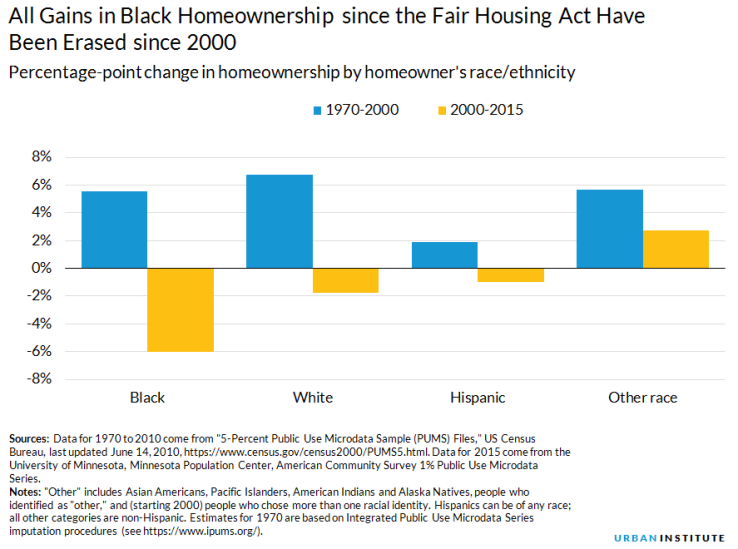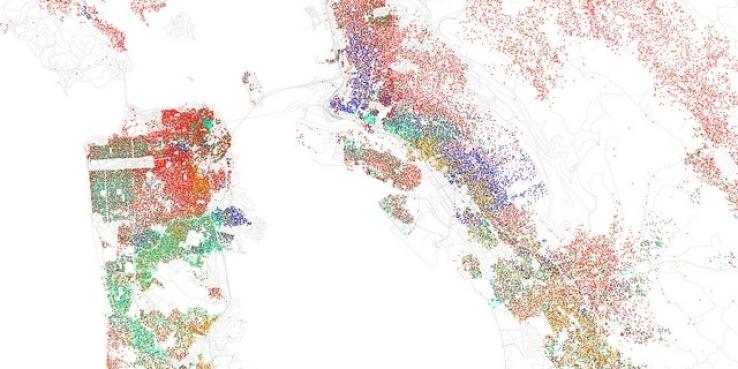In January, two new laws were introduced in Congress to limit public information on the racial makeup of communities and the race of those struggling to afford housing.
The two bills – H.R. 482 (Paul Gosar, R-AZ) and S. 103 (Mike Lee, R-UT) – would prohibit the use of federal funding “to design, build, maintain, utilize, or provide access to a Federal database of geospatial information on community racial disparities or disparities in access to affordable housing.” These proposals could impact how the U.S. Census collects data for the 2020 decennial Census and the ongoing American Community Survey (ACS), part of which is specially tabulated to inform the allocation of housing assistance to those who need it most.
The intent of these bills is unstated, but their effects would include jeopardizing progress on racial equity. The most obvious problem is that they would effectively blot out our ability to measure racial disparities across neighborhoods. And that would mean we could no longer track institutional racism — or measure our progress to reverse it. For example, without housing and community data tabulated by race, we would not have recently learned that gains in black homeownership since the passage of the Fair Housing Act of 1968 were completely eroded between 2000 and 2015. (See the Urban Institute’s figure below). The disproportionate impact of the housing bubble and Great Recession on the wealth of black Americans would be less visible and measurable, and perhaps vulnerable to dismissal, without quantitative proof.

These two bills aren’t isolated efforts to limit demographic data. The ACS — the 70-question form sent to 3.5 million U.S. households every year — has been under repeated attack in recent years. Those who oppose it cite that the constitution only requires a basic count of people to ensure proportional representation in Congress. They say other questions on the ACS — like the number of flush-toilets in homes or whether or not family members have disabilities — are intrusive, as is the threat of a fine if they aren’t answered. But in making these claims, opponents fail to acknowledge that all survey forms are scrubbed of things like names and addresses and that fines have never been levied.
Some have warned that the ACS could be vulnerable to cuts in the next round of federal budget negotiations. After all, to prepare for the 2020 decennial census, the Census Bureau has submitted a request for 20 percent more funding in the coming year compared to 2016. A Republican-controlled congress looking to limit the size of government and a White House that prefers to generate its own facts could spell trouble for the ACS.
Thankfully, support for the ACS is widespread. Workers in government agencies use ACS data to allocate over $500 billion in federal spending. Conservative policy groups use it to conduct analysis. Large companies and numerous national business groups support it for its importance to conduct market research, plan businesses and create jobs.
If the ACS goes away, no other agency would have the resources to consistently collect detailed data, including racial data, for every neighborhood in the United States. The Census Bureau’s data collection provides us with some of the western world’s most robust and up-to-date public information, including local demographics as they relate to housing, commute and work patterns. It is the only source of these data that is consistent enough to allow comparisons across time and place.
In the era of “big data,” it may seem that we have access to more information than ever. Large companies are tracking where we take our cellphones, how many steps we take each day and what we buy with our credit cards, but they could not replace census data for three very important reasons:
- Big data relies on information passively transmitted from devices like cell phones and credit cards, which people who are very poor, homeless or elderly may not use. Relying on these data alone to understand our communities or the effect of different policies would mean that entire segments of people literally wouldn’t count.
- Big data are often only available for purchase. This means even basic research could be expensive, which could stifle innovation, as well as our ability to evaluate policy and ensure governmental accountability for all communities.
- Things like racial data simply aren’t collected along with all other big data. Without this layer of information, we can’t study how policies and economic changes affect different people.
Without the ACS and data on race, how else will we measure and ensure a that everyone in the country has equal access to housing, homeownership and countless other components of wellbeing and progress? Knowing and using this information is foundational in building and maintaining the democratic society we all deserve.
